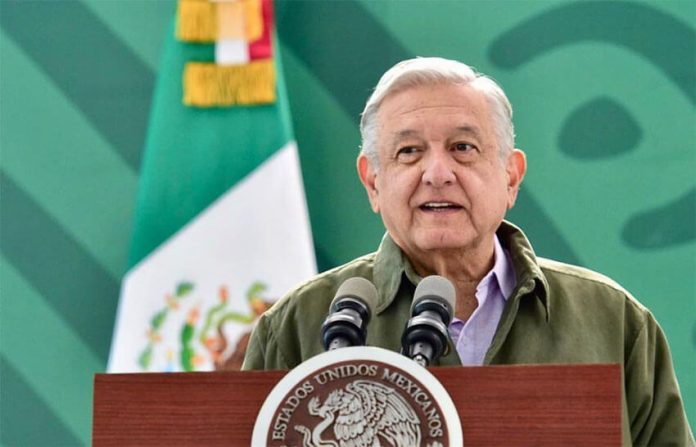President López Obrador’s new decree that fast-tracks government infrastructure projects and protects them from scrutiny and legal challenges is part of “a cynical power grab” and possibly an “act of desperation,” according to an opinion piece published Monday by The Wall Street Journal.
The decree, published in the government’s official gazette last week, shields from scrutiny the construction of infrastructure projects in a wide range of sectors by declaring them pertinent to national security.
Columnist and WSJ editorial board member Mary Anastasia O’Grady claimed that AMLO, as the president is best known, “pronounced himself above the constitution” by issuing the decree.
“It felt for some like the beginning of the end of the Mexican democracy,” she added in a piece published under the headline “López Obrador courts the Mexican military.”
“… The decree designates the development of large parts of the Mexican economy as pertaining to ‘national security.’ Think Donald Trump’s steel tariffs – justified on the same grounds – on steroids,” O’Grady wrote.
“… Under current Mexican law, once a project is deemed necessary for national security, no-bid contracts are permitted and the terms of those contracts may be shrouded in secrecy,” she said.
O’Grady, a frequent critic of the president, said the decree is likely to be struck down by the Supreme Court (SCJN), and asserted: “This suggests that it is an act of desperation rather than a sign of strength.”
She claimed that a court decision against the decree “will be useful in further inflaming” AMLO’s base after the president’s “most ardent disciples” bemoaned obstacles to his proposed electricity reform, which seeks to guarantee more than half of the power market to the state-owned Federal Electricity Commission.
O’Grady noted that AMLO “has been drawing the military closer by giving it contracts to build pet projects,” such as the new Mexico City airport and sections of the Maya Train, as well as “money making opportunities” via future management of those projects and others, such as the Isthmus of Tehuantepec trade corridor.
“Under the guise of national security, the new decree widens the scope for similar military contracts,” she wrote.
“To make his projects run smoothly, Mr. López Obrador’s diktat shoves aside independent agency reviews that would normally ensure project feasibility, environmental protections and transparency,” O’Grady added.
“… Authorizations not given within five days will be ‘considered resolved in a positive sense.’ Translation: Whatever AMLO wants, AMLO gets.”
Continuing with her denunciation of the decree, O’Grady noted that Mexico has long been considered one of the world’s most corrupt countries and asserted that “classic liberals have tried to overcome this problem by building institutions.”
“Their efforts have been only partly successful, as evidenced by serious allegations of graft during the presidency of President Enrique Peña Nieto from 2012 to 2018. Yet using the imperfection of institutional checks as an excuse to demolish them is a cynical power grab,” she wrote.
(AMLO is also seeking to eliminate two energy sector regulators with his electricity reform and has outlined plans to incorporate other autonomous organizations such as the National Institute for Transparency and Access to Information into federal ministries and departments.)
“Mr. López Obrador’s real problem is that, although he remains popular, the country is also flush with interests that don’t always share his views – from Mayan communities that oppose his train through their lands to energy investors with signed contracts,” O’Grady opined.
“In other words, AMLO is running head-first into pluralism, where the limits on executive power, lawfully imposed by Congress and the courts, threaten to slow his agenda in the second half of his term. If his supporters respond with physical confrontation, or what they call ‘participatory democracy,’ Mexicans had better fasten their seat belts.”
With reports from The Wall Street Journal
